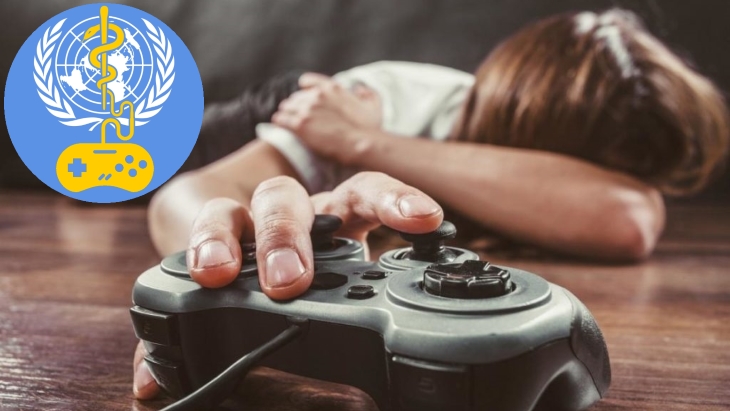
This is an editorial piece. The views and opinions expressed in this article are those of the author and do not necessarily represent the views and opinions of, and should not be attributed to, Niche Gamer as an organization.
Editor’s Note: Due to a technical error, this editorial series was produced in the wrong order. This is the second part of a three part series. You can find part one here, and part three here.
Last time we discussed the recent decision by the World Health Organization (WHO) to officially declare “Gaming Disorder” as a serious issue. Many complaints levied at it over a year ago still apply. While the minimum requirement of the symptoms needing to persist for 12 months helps weed out “unstable addictions” (addictions that only last a few months and are “self-cured” or fade over time), there was still reasonable doubt over the vagueness of what constituted as an addiction to a person unfamiliar with video-games and in comparison to average usage time of other media.
Other unresolved issues include transparency of research, signs of treating gaming disorder like substance abuse in terms of how it functions or seriousness, a lack of defining what “overdoing gaming” is, accusations of responding to moral panic and how it could cause undue scrutiny to those who are enjoying their hobby in a healthy way- which in turn could have adverse mental health effects on the person.
There are a few of those concerns still left untouched and those that can be elaborated upon further. This is where the editorial continues. Has gaming disorder been disproven as a symptom of other mental health issues? Is there a legitimate reason to believe diagnosis would be used to “restrict and control” children? What harm could a false diagnosis do to a person who was enjoying their hobby in perfect health and peace?
Please bear in mind all of the following scenarios do not feature a genuine addict. These are the worse-case scenarios where an individual has been wrongfully accused of being an addict. We will also explain how such a thing could happen and why protests of perfect health may go unanswered. While there are sure to be addicts of any enjoyable activity (behavioral addiction), treatment for those focus on why an individual behaves like that, rather than the addiction or activity itself being the root cause. This is why gaming disorder could cause harm.
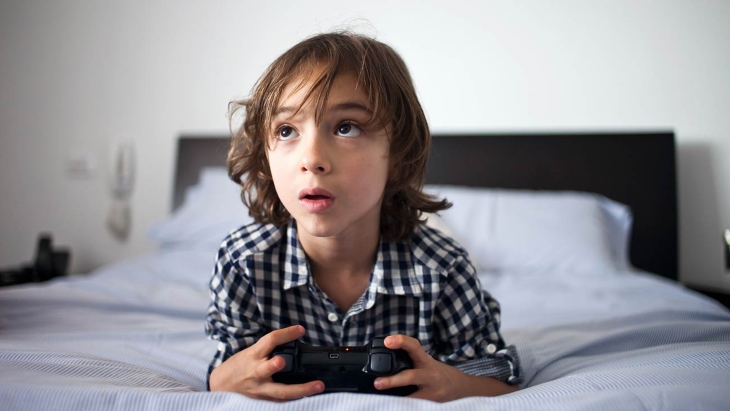
Imagine if you will, a child. Maybe they are not good at sports. Maybe they do not get along with others because they are too different, or just do not share the interests others around them have. Whatever the reason, they prefer gaming to other hobbies or another attempt at socializing. Compare this to the stereotype of the “bookworm” or the “wallflower”. Even in our allegedly “kinder” era, being a geek or nerd is pitiable- but not of major concern to treat.
Now, a concerned parent or teacher may believe our little analogy is quite lonely. Indeed, social interaction and friends are important for a child’s development. But what to do? Teaching someone how to fit in? If the parents could do that, they would not be in this mess in the first place. Encourage the kid to get out of the house more? Well, they do not really like it. If anything, every failed attempt to find an outdoor activity they enjoy or friend just reinforces their notion they never will find anything like that. Now hold on- what if this was not the parent’s fault?
Of course, it is all so simple. They tried their best, so the best result must come from it. No, it must be some subversive terrible force beyond the expertise of the parents. Something effecting everyone’s children. It does not feel so bad when there are other people who are struggling with the same problem you are. Oh but what could it be? How can they save this child they care for?! Enter paranoia, holding the door open for gaming disorder.
Well meaning parents fall for moral panic hook line and sinker, jumping on any “treatment”. Who knows, maybe the kid will become a great success afterwards? Oh how they will be praised for helping the poor little whelp realize their full potential. Even if we ignore the idea of a quack doctor who would be happy to take anyone’s money, the most well meaning doctor relying on bad information and/or on the look out to curtail a crisis in children is going to get bad results.

If you did not know a thing about video games, only that they had the potential for addiction, how would you react to the phrase “my child spends around two hours every day playing video games and longer at weekends”? Does fifteen hours a week sound like too much? When the parent says their child “sometimes” makes a fuss about turning off the game and going to bed, are they downplaying a more serious issue out of shame?
When I was a young boy, there was a scandal known as the death of Baby P. In short an abused child ended up dying, despite multiple visits and inspections from children’s services. Around that time, I remember happily re-enacting Captain Hook and Peter Pan with my uncle using garden canes. My fantasy fencing resulted me dodging right into a mistimed thrust and earning me a small graze down my side. No big deal. Yet when I went to the doctors for a routine check up, I ended up being stripped down to my underwear and given a much more thorough examination to ensure there were no signs of domestic abuse.
A doctor should be “over-cautious” when it comes to children. A doctor needs to make sure the child is hale and happy. Any ignored tell-tale signs could result in serious harm to a child. This in turn could result in the doctor being brought before an inquest, then those judging the doctor also consider if its better to be safe than sorry for the sake of children. As long doctors do not make dogged attempts to find a problem that is not there, doctors should and need to follow up on symptoms of anything affecting a child’s health they suspect.
Teachers also have to be vigilant for tell-tale signs without obsession. Which then enters far darker waters when they enter logger-heads with parents who understand their child’s hobby is healthy and enjoyed in a healthy manner. This usually results in Child Protective Services being called in- equally vigilant and seeking nails they have been told to hammer down. Compare this to the ongoing debate over Ritalin and claimed over-diagnosis of ADHD in children. Can they risk assuming everything is fine when children and possibly their jobs are at stake?

Just for a moment, let us put aside the doubt cast on gaming disorder being too vague and the idea of people acting in “crisis mode” will result in false-positives. Due to the nature of how genuine addicts can react during their diagnosis and treatment, the expert is sadly always proven “right”. A kafkatrap is where an individual’s defensive behavior to an accusation is considered proof of guilt. Usually said accusation is something abhorrent, or would deny that person something they enjoy. How do you believe a child would react to being told they were an addict to something they liked doing?
True addicts are well documented as reacting poorly to withdrawal; including irritability, anxiety and depression. How would the child be acting after a week without access to what they enjoyed? Something similar according to some, but perhaps not to such an extreme degree. Or maybe it will. Children are not in balance of their emotions, even a level-headed reaction at first could quickly boil over as every attempt at reasoning is shot-down as an addict making excuses. Even those attempting to help the child could have mounting frustrations to this denial.
“You can do anything else you want. Come on you must enjoy other hobbies, you cannot just have one thing you like.” “Please, try talking to other kids again. I am sure you will find it easier this time.” “Now look, I know you have had some bad experiences, but not all people are like that. There must be someone you can make friends with and something else you enjoy doing.” “No that does not mean it is your fault, I just meant- Look, you are not playing those games again and that is final!”
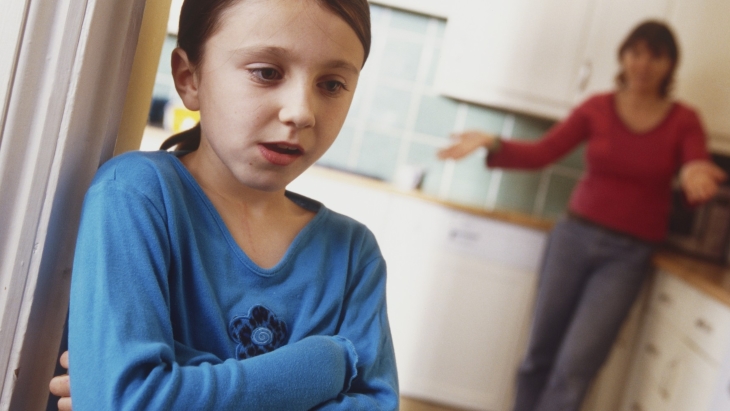
If the child did find a new hobby and gained friends, great. It probably would result in a mentally sound person. There might be a risk of “relapse” and genuinely becoming obsessive about gaming later. There child may even develop negative feelings towards games due to it coming from a stressful time in their life- but this is not the focus here. What happens to a falsely diagnosed addict when they unable to fulfill the requirements of their treatment?
If you deny someone something that makes them happy and then give them experiences they do not enjoy, what happens next? Someone who found sanctuary having that stripped away and told to give what they escaped from another go? It is a hard road for a genuine addict and it is not much better for someone being dragged along when they are not.
When a child is misdiagnosed as being an addict due to concerned parents, teachers or doctors- the expert is right. The expert was “right” because the child reacted poorly to no longer being able to play video games. The expect was “right” because the child continues to react poorly.
They are miserable, do not make a “proper effort” to find new friends and other activities, or act out because they cannot play video games. If the child keeps being miserable? Well, clearly this is a difficult case where more work is needed. After all, psychology is not an exact science. You can hardly expect there to be an expert with all the answers.

While there may be concerns of some doctors treating a child with gaming disorder when they are fine, there is also the fact to consider that gaming “disorder” is exactly what they need. There is already existing research suggesting gaming can be used as a way to cope with anxiety, stress, pain relief, cancer and stroke rehabilitation, loneliness and poor social skills. There are also studies and research indicating gaming could be used as a coping mechanism for trauma, and PTSD [1, 2, 3]. What does the WHO think takes precedent? The bandage or the wound?
Curiously, my research into if video games could be used to help cope with recovering addicts (such as drugs or alcoholism) was almost thwarted. No matter the search parameter, merely mentioning video games in the same sentence as video game brought up many articles about video game addiction and treatment centers. Try it yourself at home.
Thankfully, I did find at least one article discussing a 2015 study. While the study was conducted using Tetris, it is not hard to imagine how the findings could apply to any game that requires a fair degree of concentration. As Professor Jackie Andrade from the School of Psychology and the Cognition Institute at Plymouth University explains:
“We think the Tetris effect happens because craving involves imagining the experience of consuming a particular substance or indulging in a particular activity. Playing a visually interesting game like Tetris occupies the mental processes that support that imagery; it is hard to imagine something vividly and play Tetris at the same time.”

Another major concern is at the other end of the scale- how gaming disorder could in fact be the symptom of a much larger issues that does need professional treatment. As Psychology and Video Games researcher “Platinum” explained in her concerns about gaming disorder over a year ago:
The third issue cited is the fact that addictive gaming seems to often be accompanied with other mental health disorders such as depression or anxiety disorders (Kardefelt-Winther, 2014); this is called ‘comorbidity’. It is argued that the suggested criteria for Gaming Disorder may not be robust enough to detect whether someone is playing games for reasons such as a distraction from depressive symptoms or gaining social contact that their undiagnosed Social Anxiety Disorder prevents them from doing. I have seen this practice referred to as ‘Bed Syndrome’. If someone is depressed and spends all day in bed, you do not diagnose them with Bed Syndrome, you look at why they spend all day in bed. There is a fear that if a person’s gaming is focused on and not the person themselves, this will lead to inadequate mental health treatment.
It should be noted that several studies propose that individuals who use games as coping mechanisms may become addicted to them. To that I say: Duh. The worse the experience, the more likely someone is to seek some form of comfort. Each case would need to be examined to see if it was merely the aforementioned unstable addiction.
Thanks to the WHO, we now know this period needs to last at least 12 months. While neither of those studies revealed how long they tested for, one did mention “Gentile’s previous research found gaming disorder rates are between 2 and 8 percent of gamers.” I assume that figure must have skyrocketed since then for the WHO to show such concern.
Simply put, video games can be a way to cope with what is currently incurable. Trauma, addiction or depression. Coping with the fact you were born with physical deformity or behavioral problems. Struggling to make friends because you cannot fit in- be it because you cannot find anyone with common ground, they are directly opposed to you (disgust at you due to race, sexuality, gender, deformity and more).
To put it bluntly; you are surrounded by people you do not like and you do not automatically get along perfectly with everyone else. Or you have deep issues that you cannot solve. Because you cannot find that help, you cannot afford it, you are embarrassed or fearful. As long as it is not a substitute for an ongoing or worsening problem, where is the harm in using fun in moderation to feel good when you feel bad?
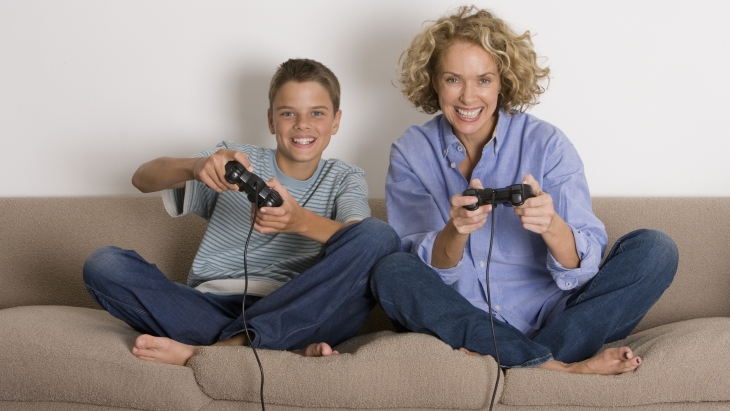
Along with stripping away a coping mechanisms or treating a symptom instead of a problem, a well meaning doctor could be stripping someone of the ability to socialize with online friends, decreasing symptoms of depression in some research. Thankfully we are well past the era of tech ignorance where a parent does not believe you are talking to another person across the internet in a video game.
Instead we have outlets making dubious claims that kids are being recruited by Neo-Nazis though games, but that is a topic for another time. A parent should have a healthy caution about their child having a stranger as a friend online, but is that caution because they are unknown or because they are one of those weirdo gamers?
Nonetheless there is still a lack of understanding how online friends can be a good substitute for the real thing when compared to isolation. In rare cases online friendships can blossom into something as steadfast as real friendship, especially when finally meeting face to face. But to a doctor? Choosing a text box over real conversation and interaction? Clearly not normal. We return to kafkatrapping.
It seems “did not disprove it was not a symptom of other mental health issues” is still an issue. Not to mention this constitutes “those enjoying the hobby in a healthy manner becoming subject to scrutiny and cause a negative impact on mental health.” Getting called an addict when you would rather game than an activity you do not enjoy and is not necessary is sure to become tiresome. Not to mention the alarmist concerns of many media outlets could falsely recontextualize what parents had thought was healthy.
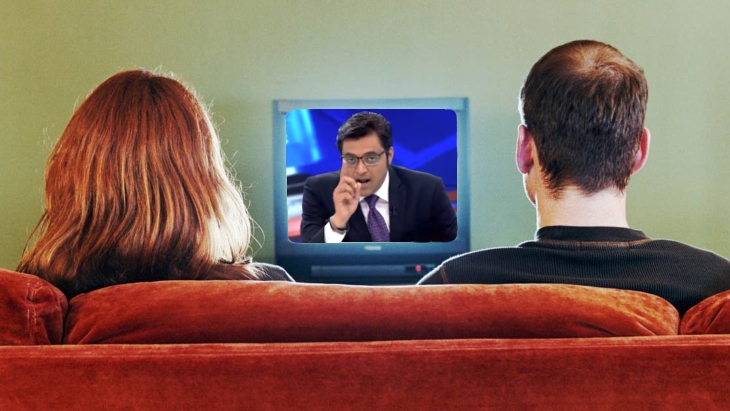
The concern of the diagnosis “being used to restrict and control children” is a little harder to justify. If you have a genuine addict, the treatment requires control and restraint. Holding them back from their addiction until they develop techniques and willpower to resist without assistance. If you have a child who genuinely suffers from gaming disorder, you would need to “restrict and control” them.
The implication of the concern could be that treating gaming disorder could be used for more insidious purpose. Comparing it again to the concerns around Ritalin and ADHD, there could be reasons for a parent or teacher to lie about how addicted a child is. A personal grudge held against video games to the degree they believe nothing good can come of them, ensuring the child focuses more on studies so they are a success, a way to get them to socialize more so they can spend less time with the child.
All of the above is starting to delve a little too deeply into “what if”. Unless the doctor also has a similar axe to grind (want to prove gaming disorder is a more wide-spread problem for example), there is usually a bevvy of checks and balances to ensure a parent is being truthful when discussing problematic children.
Where those do not trust a doctor’s mental health diagnosis or even the whole medical field, usually comes from a case-by-case basis. Discussing if a diagnosis is overreaching and vague is one thing, but contemplating on how many doctors you can trust with your child is bordering on paranoia. Chinese-style “addiction camps” where military tactics ended up killing a teenager would never happen in the west. No matter how much gaming disorder was deemed a crisis. Right?
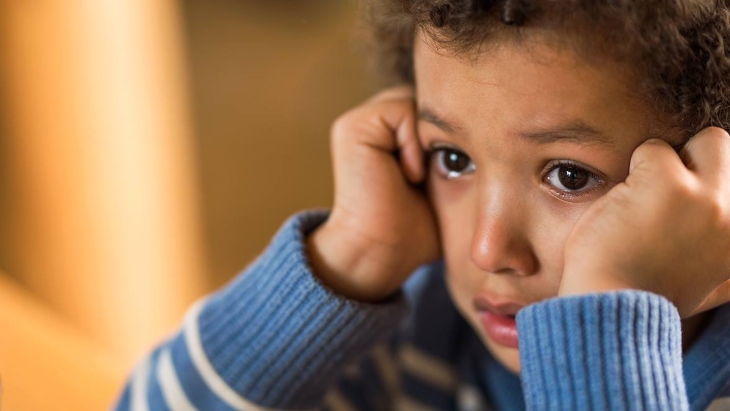
Using a child for our analogy was admittedly a low blow. Then again, most of the points laid here still stand with an adult. In fact, the adult has it worse in some ways. A child is expected to be fussy and not understand an expert. They are young and have not learned of the world of course. But a grown man or woman questioning a doctor? Clearly something is wrong with them.
Combined with how many still view video games as childish and the aforementioned kafkatrapping, and a grown adult would find it hard to shirk the accusation once it was made. In fact, wrongful accusation could cost them current or future employment. An with getting older, more serious concerns and stresses cloud the mind. “So what if I spent my holiday at home playing video-games, that’s what I wanted to do. No I’m not an addict- that whole thing was nonsense anyhow!” If you were concerned someone was an addict, how would that sound to you?
The reason I used a child as an analogy though this article is for one reason. Gaming disorder has not been disproven as a symptom of other mental health issues. There are is a legitimate reason to believe some may give false diagnosis or testimony to restrict and control a child. There is plenty of harm that could be done if someone has no addiction is falsely accused and “treated”, not just indicated by my own article but research from 2018 that still holds true today (which I highly recommend for further reading on the subject).
If there are flaws in diagnosis and treatment, they need to be worked on. While most of my concerns would affect an adult, in order to show how desperate I am for you to understand why I am worried I beg of you: Think of the children.
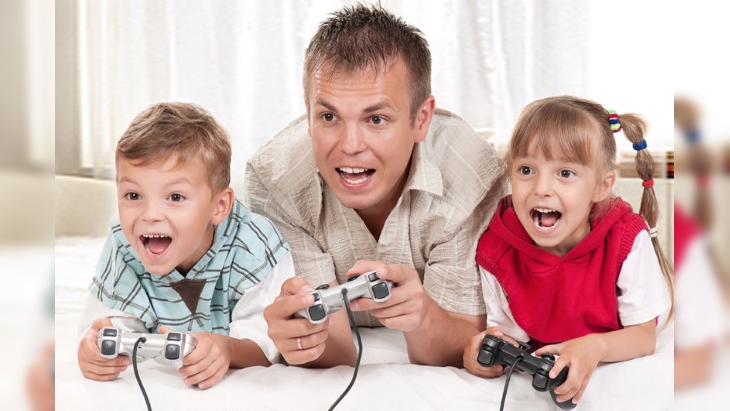
Of course, unless we somehow manage to perfectly differentiate between a genuine gaming addict and otherwise, there are still one concern. One not even laid out by the scholars and psychologists a year prior. Where there is an ambulance, there is an ambulance chaser. Where there is confusion, there is someone who takes advantage of ignorance. Where there is discord, there is someone who profits from chaos. Join us for our final editorial on gaming disorder, as we explain: Why Gaming Disorder Could Lead to Scams.